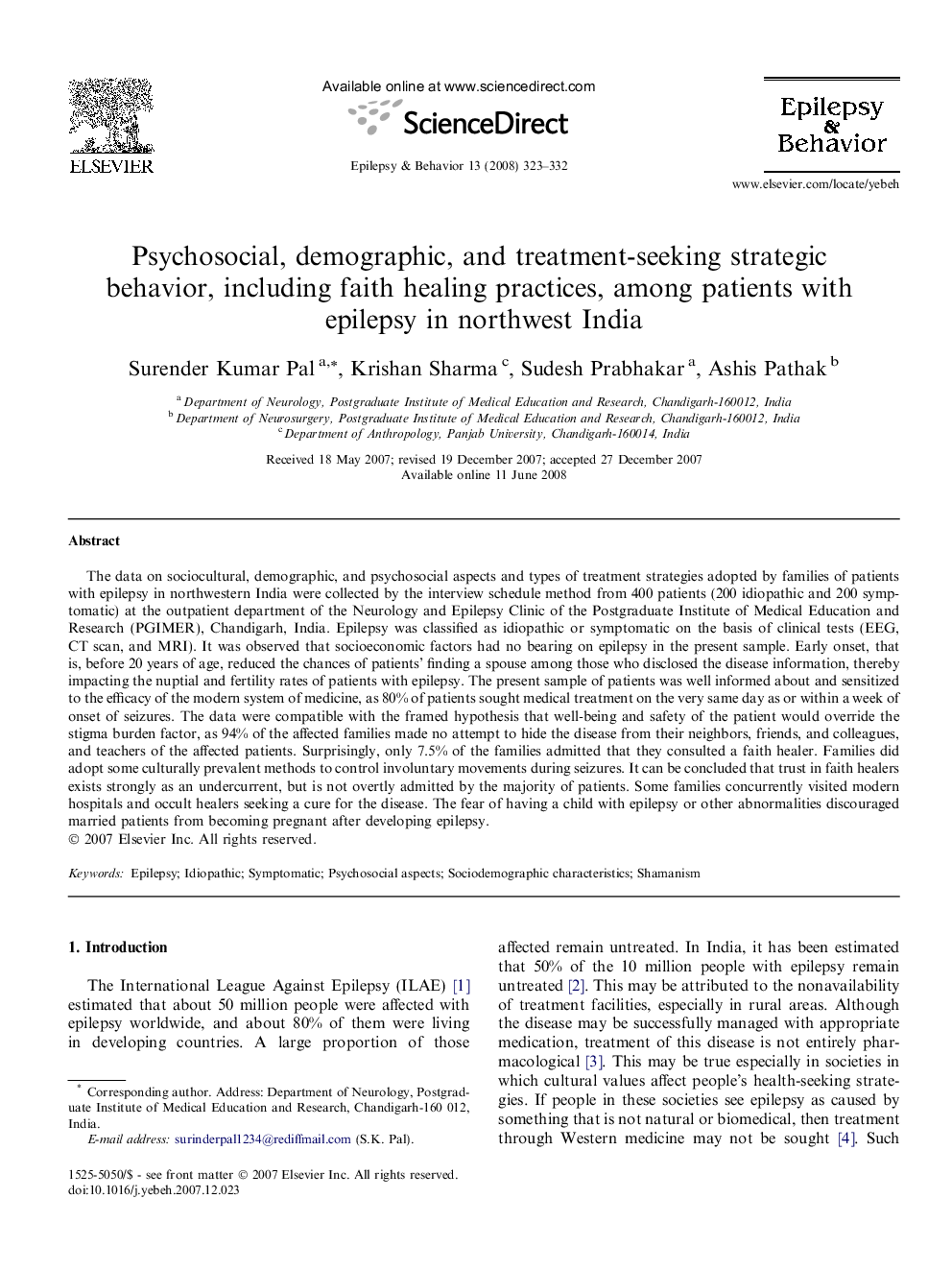| کد مقاله | کد نشریه | سال انتشار | مقاله انگلیسی | نسخه تمام متن |
|---|---|---|---|---|
| 3050851 | 1185965 | 2008 | 10 صفحه PDF | دانلود رایگان |

The data on sociocultural, demographic, and psychosocial aspects and types of treatment strategies adopted by families of patients with epilepsy in northwestern India were collected by the interview schedule method from 400 patients (200 idiopathic and 200 symptomatic) at the outpatient department of the Neurology and Epilepsy Clinic of the Postgraduate Institute of Medical Education and Research (PGIMER), Chandigarh, India. Epilepsy was classified as idiopathic or symptomatic on the basis of clinical tests (EEG, CT scan, and MRI). It was observed that socioeconomic factors had no bearing on epilepsy in the present sample. Early onset, that is, before 20 years of age, reduced the chances of patients’ finding a spouse among those who disclosed the disease information, thereby impacting the nuptial and fertility rates of patients with epilepsy. The present sample of patients was well informed about and sensitized to the efficacy of the modern system of medicine, as 80% of patients sought medical treatment on the very same day as or within a week of onset of seizures. The data were compatible with the framed hypothesis that well-being and safety of the patient would override the stigma burden factor, as 94% of the affected families made no attempt to hide the disease from their neighbors, friends, and colleagues, and teachers of the affected patients. Surprisingly, only 7.5% of the families admitted that they consulted a faith healer. Families did adopt some culturally prevalent methods to control involuntary movements during seizures. It can be concluded that trust in faith healers exists strongly as an undercurrent, but is not overtly admitted by the majority of patients. Some families concurrently visited modern hospitals and occult healers seeking a cure for the disease. The fear of having a child with epilepsy or other abnormalities discouraged married patients from becoming pregnant after developing epilepsy.
Journal: Epilepsy & Behavior - Volume 13, Issue 2, August 2008, Pages 323–332